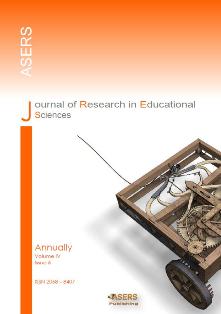SOCIAL, EMOTIONAL AND BEHAVIORAL DIFFICULTIES IN MALTESE SCHOOLS: A MULTILEVEL MODEL
SOCIAL, EMOTIONAL AND BEHAVIORAL DIFFICULTIES IN MALTESE SCHOOLS: A MULTILEVEL MODEL
Keywords: SEBD; random intercept model; multilevel model; Malta; schools
Social, emotional and behavioral difficulties (SEBD) in schools are a complex phenomenon resulting from various factors, including biological, psychological and social factors. The main objective of this paper is to identify student-, class- and school-related factors that are significantly related to SEBD - seeking to develop new ways of understanding and preventing SEBD in Maltese schools. A proper methodology for analyzing hierarchical structured data where observations are nested within groups is multilevel modeling. This paper presents a threeleve random intercept model that accommodates random effect within each level of nesting and examines the contribution of a number of predictors in explaining variations in the SEBD scores elicited from 5300 students attending primary and secondary state, church and independent schools. The model identifies student- related variables, particularly engagement, diagnosis and intervention, as better predictors of SEBD than class- and school- related variables.
More...
